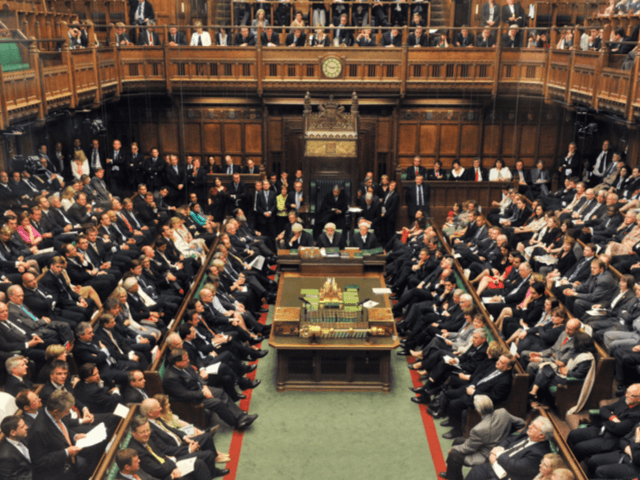The alarming extent of government disconnect from the British people has been laid bare in a new poll, which reveals that more than three-quarters of Britons feel they have little or no influence over government decision making. In addition, a staggering 92 per cent do not believe that politicians put country first when making decisions.
The welfare state also received a drubbing: nearly 60 per cent of Britons believe it is not fit for purpose, while just over half believe that the government interferes too much in peoples’ lives. Just 33 per cent thought their involvement was “about right,” and a mere three percent thought the government should involve itself more.
And a whopping 80 per cent believe that laws often fail to achieve what they are intended for, or that they create new problems even if introduced with good intentions.
Yet there was widespread distrust of private companies too: an astonishing 45 per cent of people agreed with the statement “health and education services should not be run by private companies under any circumstances,” whereas only 36 per cent disagreed with it.
The results, revealed by a ComRes poll for the Institute of Economic Affairs (IEA), highlight the widespread disillusionment with government which characterises the current state of British politics. That discontent has been hinted at by successive electoral successes for the anti-establishment UK Independence Party, winning the European Elections in 2014, and culminating in securing over four million votes and one Parliamentary seat during last May’s general election.
However, many Britons who backed Ukip at the European Elections, seeing the vote as an opportunity to register their discontent without causing instability in the system, reverted to the traditional parties at the general election, largely masking the vast disconnect between country and establishment.
A spokesman for the IEA said: “The huge growth in government over recent decades has led to demonstrably poor outcomes in public services – the UK ranks only 20th out 24 OECD countries on cancer survival rates; 6 million people are living in workless households; 40% of children are failing to achieve the minimum standard of GCSE grades; and politicians have run deficits in 52 of the last 60 years. This is unacceptable.
“Our current political establishment allows the better off to get on, but is failing the poor through complexity, monopoly and a lack of competition in the provision of public services. Meanwhile, our welfare system is failing to help those most in need.”
The IEA has today launched the Paragon Initiative, a major five year study to determine what changed need to take place in order to improve the way in which we are governed, with a view to creating a country where people have greater control over their lives.
In a paper introducing the project, they argue that the current framework of UK government is failing to provide high living standards, high quality public services and good social outcomes.
The report notes: “Over the past 150 years, politicians have taken over many aspects of our lives that were previously the responsibility of families, civil society and local government, and centralised them in the hands of a small number of ministers and civil servants.
The huge growth in government has dove-tailed with increasingly poor outcomes and public services, as Britain falls behind its international competitors on a range of measures.
In health, the UK ranks 20th out of 24 OECD countries on cancer survival rates and 24th out of 30 countries on the ‘efficiency’ of the health system. In education, 40 percent of pupils do not get the accepted minimum standard of GCSE grades A* to C in English and Maths by age 16. And of those who fail, a shocking 90 percent will still not achieve that standard by age 19. And in social outcomes, 4.5 million people of working age and another 1.5 million children are living in households in which no-one works.
In response to this picture, the IEA is urging a bold whole-scale rethink of the way government works, from ground up.
“Achieving effective government to meet the challenges of today and the future requires politicians to be bold enough to completely re-think the scope of the state and how its functions are delivered and managed,” they say.

COMMENTS
Please let us know if you're having issues with commenting.